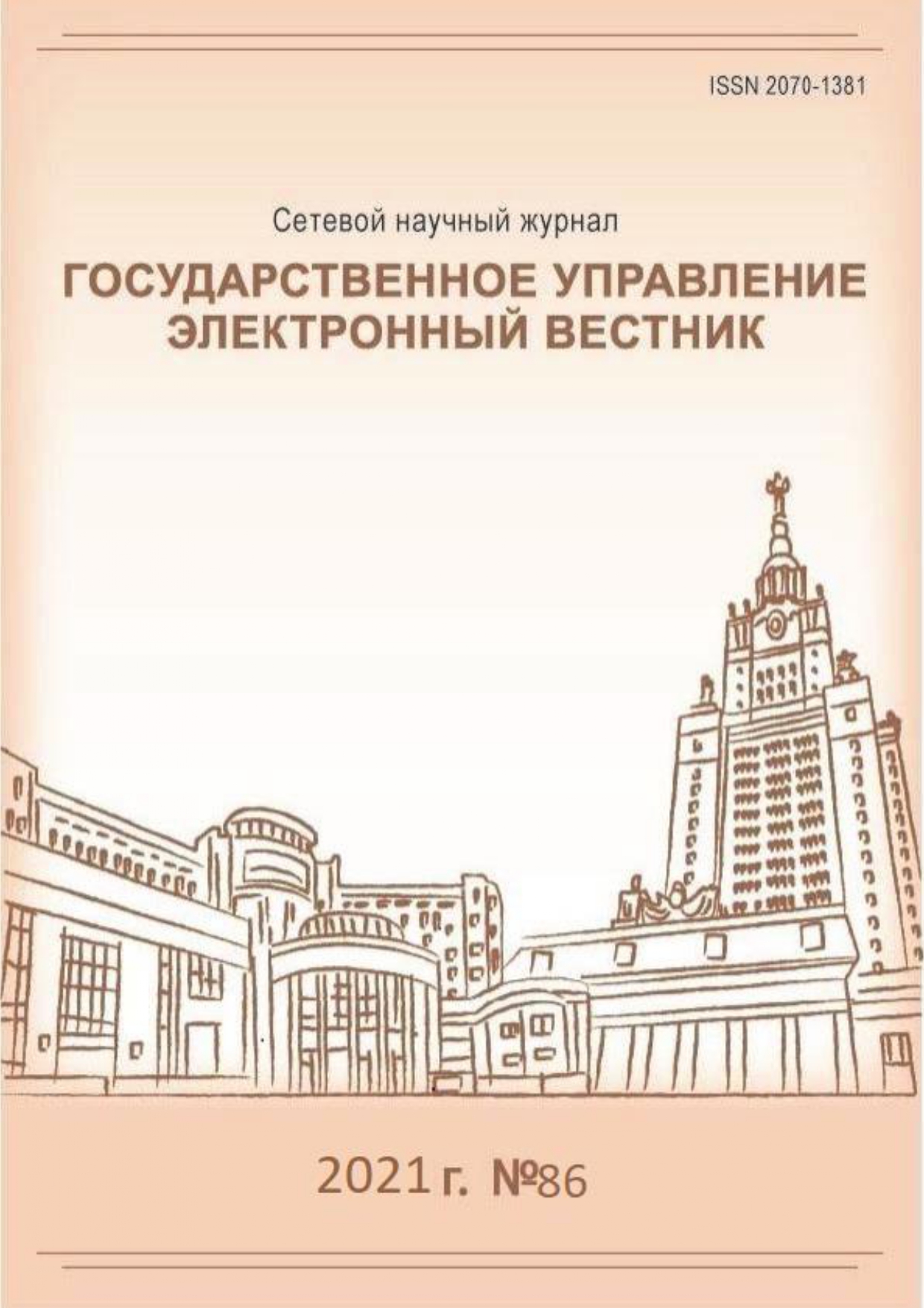University-Business Cooperation Support System in the Context of Global Instability
Keywords:
Universities-business cooperation, COVID-19 pandemic, R&D activities, technology transfer, government support, system of higher education, commercialization of innovationsAbstract
The global crisis caused by the COVID-19 pandemic has had a negative impact on the research activities of universities around the world, as well as caused a significant reduction in universitybusiness cooperation (UBC). However, UBC is an important factor in the development of innovation and economic recovery, which is of key importance in economic downturn. In this regard, one of the urgent tasks is the creation of UBC support system, which would improve the targeting of financial and economic support and the effectiveness of partner activities of universities and enterprises. The set of measures to strengthen cooperation between universities and business consists of three blocks: funding, information support and promotion, organizational and legal measures. The main activities within the funding block include: differentiation of state support depending on the duration and nature of UBC; developing simplified UBC financing mechanisms and expanding tax incentives; introduction of an additional incentive system for employees participating in the UBC from the administration of universities and enterprises, and so on. The activities of the block of information support and promotion are aimed at stimulating the creation of a university scientists’ community with experience of cooperation with business, for the dissemination of the “best practices” of UBC and the search for new partners. Organizational and legal measures of the UBC support system include: specifying the expected benefits from R&D at the stage of obtaining funding; creation of technology transfer centers in order to optimize the administrative burden for UBC support; creation of a regulatory framework to expand the opportunities for professional mobility of university and commercial staff; improvement of the UBC indicator system, etc. Thus, the creation of a UBC support system will contribute to an increase in the practical relevance of R&D results, a more efficient use of resources available by universities and enterprises, as well as an increase in the crisis stability of the regional economy.
References
Клягин А.В., Абалмасова Е.С., Гарев К.В., Груздев И.А., Егоров А.А., Захарова У.С., Калинин Р.Г., Камальдинова Л.Р., Карлов И.А., Корнеева И.Е., Макарьева А.Ю., Минаева Е.А., Платонова Д.П., Семенова Т.В., Скокова Ю.А., Терентьев Е.А., Фрумин И.Д., Швиндт А.Н., Шибанова Е.Ю. Шторм первых недель: как высшее образование шагнуло в реальность пандемии. М.: НИУ ВШЭ, 2020.
Ларионова В.А., Семенова Т.В., Мурзаханова Е.М., Дайнеко Л.В. Экономические аспекты вынужденного перехода на дистанционное обучение, или какую цену заплатили вузы за дистант // Вопросы образования. 2021. № 1. С. 138–157. DOI: 10.17323/1814-9545-2021-1-138-157.
Неборский Е.В., Богуславский М.В., Наумова Т.А., Ладыжец Н.С. Цифровое образование: переход университетов Германии в онлайн в условиях пандемии COVID-19 // Общество: социология, психология, педагогика. 2020. № 12(80). С. 200–205. DOI: 10.24158/spp.2020.12.36.
Нечай Е.Е., Синенко А.А. Организацонно-методические и правовые особенности дистанционного обучения в период пандемии (опыт Тихоокеанского государственного медицинского университета) // Общество: социология, психология, педагогика. 2020. № 12(80). С. 234–238. DOI: 10.24158/spp.2020.12.43.
Пэн Л., Рулиене Л.Н. Влияние пандемии-2020 на развитие образовательного процесса и образовательного менеджмента в университетах // Вестник Нижегородского университета им. Н.И. Лобачевского. Серия: Социальные науки. 2020. № 4. С. 161–167.
Сидорова А.А. Зарубежный опыт стратегического сотрудничества университетов и бизнеса в экономике знаний // Вестник Института экономики Российской академии наук. 2019. № 1. С. 88–99. DOI: 10.24411/2073-6487-2019-10006.
Хафизова В.Р. Особенности онлайн-образования в высокорейтинговых университетах стран БРИКС // Теория и практика общественного развития. 2020. № 11(153). С. 68–71. DOI: 10.24158/tipor.2020.11.12.
Benneworth P., Jongbloed B.W. Who Matters to Universities? A Stakeholder Perspective on Humanities, Arts and Social Sciences Valorization // Higher Education. 2010. No. 59. P. 567–588. DOI: https://doi.org/10.1007/s10734-009-9265-2.
Willetts D. A University Education. Oxford: Oxford University Press, 2017.
Wise E., Berg M., Landgren M., Swaag-Serger S., Benner M., Perez Vico E. Evaluating the Role of Heis’ Interaction with Surrounding Society. Developmental Pilot in Sweden 2013–2016 // Vinnova Report VR 2016:09. 2016. URL: https://www.vinnova.se/contentassets/e5ac41e111c54b878cf0b7ab7f24fe38/vr_16_09t.pdf.

